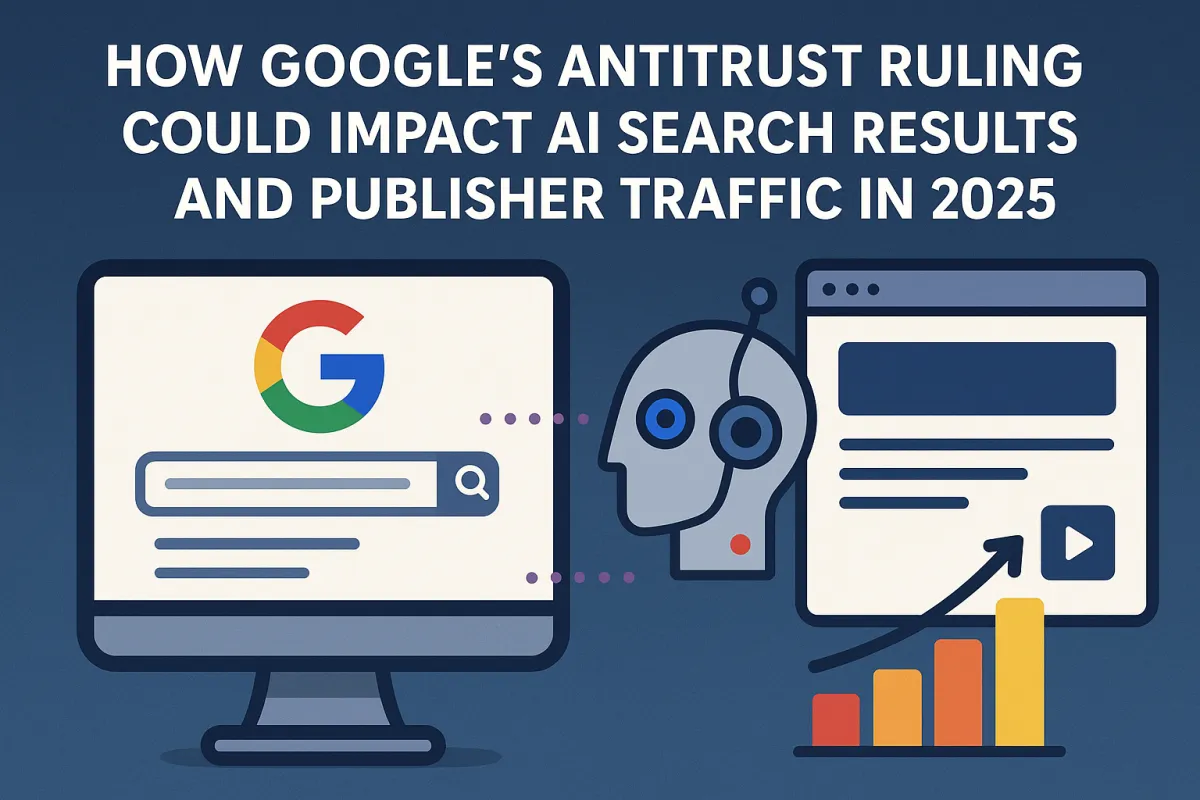
How Google’s Antitrust Ruling Could Impact AI Search Results and Publisher Traffic in 2025
Introduction
Google’s dominance in the search engine market has long been a subject of scrutiny, but the recent antitrust ruling against the tech giant marks a turning point. As regulators demand more transparency and fair competition, the ripple effects are expected to influence how AI-driven search results are generated and how publishers receive traffic in 2025. This article explores the possible outcomes and what businesses, publishers, and digital marketers should prepare for.
1. The Antitrust Ruling at a Glance
A brief overview of the ruling and why it matters.
Key points regulators raised against Google’s practices.
How the case ties directly into AI integration in search.
2. AI in Search: A Double-Edged Sword
How Google’s AI tools (like SGE – Search Generative Experience) are changing how users find information.
The convenience for users vs. reduced click-through rates for publishers.
Why antitrust regulators are worried about AI consolidating Google’s power further.
3. What This Means for Publisher Traffic
Concerns over declining referral traffic as AI-generated summaries replace traditional links.
Potential for publishers losing ad revenue due to fewer site visits.
How smaller publishers may be disproportionately impacted compared to larger media outlets.
4. Transparency and Fairness in AI Search Results
What regulators could enforce: clearer attribution, mandatory external linking, or content diversity.
How Google might adapt its AI search models to comply with new rules.
The debate over whether AI-driven search should prioritize publisher rights or user experience.
5. Implications for SEO and Digital Marketing
SEO strategies will need to evolve to adapt to AI-first indexing and ranking.
Importance of structured data, authoritative content, and multimedia in AI-driven search.
Why businesses may need to diversify beyond Google for traffic (e.g., Bing, social media, newsletters).
6. Preparing for 2025 and Beyond
Steps publishers can take now:
Focus on brand visibility outside of Google.
Build direct audience channels (email, apps, subscriptions).
Optimize for AI-driven search by ensuring high-quality, original, and authoritative content.
Predictions: Will this ruling push Google toward a more balanced ecosystem, or will it simply adapt without major changes?
Conclusion
The Google antitrust ruling signals a pivotal moment in the evolution of AI search and digital publishing. While the full impact will unfold in 2025 and beyond, one thing is clear: publishers, marketers, and businesses can no longer rely on traditional search traffic alone. Adapting to an AI-first, regulated search landscape will be essential for long-term growth.